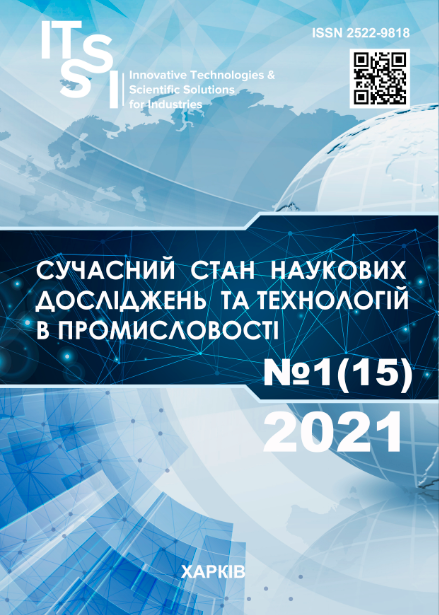MANAGING THE CAPACITY OF INTERMEDIATE POINTS IN AN EXTENSIVE TRANSPORT NETWORK
DOI:
https://doi.org/10.30837/ITSSI.2021.15.141Keywords:
transport problem with intermediate points, throughput points are not specified, methods of solutionAbstract
Relevance. A special case of a transport problem with intermediate points, when the throughput capacity of these points is not specified, is considered, which is important for practice. Purpose. The problem of finding an unknown distribution of the throughput capacity in intermediate points, which minimizes the total transport costs, is formulated. Method. Two methods for solving the problem are proposed. The first one implements an iterative procedure for improving the initial plan for dual model of original problem. The computational scheme at each iteration is a two-step one. At the first step of iteration, a coordinating problem is solved, the solution of which sets the next set of values for throughput of intermediate points. In the second step, this set is used to solve the original transport problem. The resulting solution is tested for optimality. If it is not optimal, then transition to the next iteration is performed. To implement proposed computational scheme, the Nelder-Mead zero-order optimization method was used. Tasks. Statement of problem for controlling the throughput capacities of intermediate points in triaxial transport problem. The developed method has high performance due to the use of the structural decomposition of problem. The method has low computational complexity, which is a significant advantage for practical application. Results. The constructive possibility use of this method has been proved, taking into account a large number of transport-type restrictions. In order to simplify the technology for solving transport problems at each iteration of the algorithm, their dual models are introduced. Due to the fact that computational complexity of proposed method grows rapidly with an increase in the number of intermediate points, a simple alternative approximate method for solving the problem is proposed. Conclusions. The proposed method solves problem of calculating the throughput of intermediate points in "production - delivery - consumption" system.
References
Birman, I. Ya. (1962), Transport linear programming problem, Eksmo, Moscow, 262 p.
Sira, О. V. (2010), Multidimensional Logistics Models Under Uncertainty, FOP Stetsenko, Kharkiv, 512 p.
Nesterov, B. P. (1962), Transport linear programming problem, MPS, Moscow, 189 p.
Raskin, L.G. (1976), Analysis of complex systems and elements of control theory, Sovetskoe radio, Moscow, 344 p.
Yudin, D. B., Holstein, Ye. G. (1969), Transport-type linear programming problems, Sovetskoe radio, Moscow, 382 p.
Dantzig, G. B. (1948), Linear Programming and Extensions, Princeton University Press, New Jersey, 634 p.
Motzkin, T. S. (1952), "The multi-index transportation problem", Bulletin of the American Mathematical Society, Vol. 58, No. 4, P. 32.
Halley, K. B (1962), "The solid transportation problem", Operations Research, Vol. 10, No. 4, P. 62–71.
Corban, A. (1965), "On a three-dimensional transportation problem", Revue Roumaine De Mathematiques Pures et Appliquees, Vol. 11, No. 1, P. 91–98.
Corban, A. (1971), "Transportation problem with intermediate centres", Revue Roumaine De Mathematiques Pures et Appliquees, Vol. 16, No. 9, P. 34–43.
Corban, A. (1965), "On a three-dimensional transportation problem with interchangeable centres", Revue Roumaine De Mathematiques Pures et Appliquees, Vol. 11, No. 4, P. 65.
Mihu, C. (1970), Programe tridimensionale, Ed. Tehn., Bucur, 168 p.
Anisimova, N. P., Vanina, E. A., (2012), Linear programming, Nich Vshe, St. Petersburg, 700 p.
Lungu, K. (2005), Linear programming, FIZMATGIZ, Moscow, 128 p.
Bereznev, V. А. (2004), "On the polynomial complexity of the simplex method", Journal of Computational Mathematics and Mathematical Physics, Vol. 44, No. 7. P.1244–1260.
Pawlak, Z. (1991), Rough Sets: Theoretical Aspects of Reasoning about Data, Kluwer Academic Publisher, Dordrecht, 284 p.
Slowinski, R., Vanderpooten, D. (2000), "Generalized definition of rough approximations based on similarity", IEEE Transactions on Knowledge and data Engineering, Vol. 12, No. 2, P. 331–336.
Zadeh, L. A. (1978), "Fuzzy sets as a basis for a theory of possibility", Sets and Systems, Vol. 1, No. 1, P. 3–28.
Kofman, А. (1982), Introduction to fuzzy set theory, Sovetskoe radio, Moscow, 486 p.
Raskin, L. G., Sira, O. V. (2008), Fuzzy mathematics, Parus, Kharkiv, 352 p.
Raskin, L., Sira, O. (2016), "Method of solving fuzzy problems of mathematical programming", Eastern-European Journal of Enterprise Technologies, Vol. 5, Issue 4, P. 23–28. DOI: https://doi.org/10.15587/1729-4061.2016.81292
Sira, O. V., Al-Shqeerat, K. H. (2009), "A New Approach for Resolving Equations with Fuzzy Parameters", European Journal of Scientific Research, Vol. 38, Issue 4, P. 619–625.
Raskin, L., Sira, O. (2016), "Fuzzy models of rough mathematics", Eastern-European Journal of Enterprise Technologies, Vol. 6, Issue 4, P. 53–60. DOI: https://doi.org/10.15587/1729-4061.2016.86739
Downloads
Published
How to Cite
Issue
Section
License

This work is licensed under a Creative Commons Attribution-NonCommercial-ShareAlike 4.0 International License.
Our journal abides by the Creative Commons copyright rights and permissions for open access journals.
Authors who publish with this journal agree to the following terms:
Authors hold the copyright without restrictions and grant the journal right of first publication with the work simultaneously licensed under a Creative Commons Attribution-NonCommercial-ShareAlike 4.0 International License (CC BY-NC-SA 4.0) that allows others to share the work with an acknowledgment of the work's authorship and initial publication in this journal.
Authors are able to enter into separate, additional contractual arrangements for the non-commercial and non-exclusive distribution of the journal's published version of the work (e.g., post it to an institutional repository or publish it in a book), with an acknowledgment of its initial publication in this journal.
Authors are permitted and encouraged to post their published work online (e.g., in institutional repositories or on their website) as it can lead to productive exchanges, as well as earlier and greater citation of published work.














